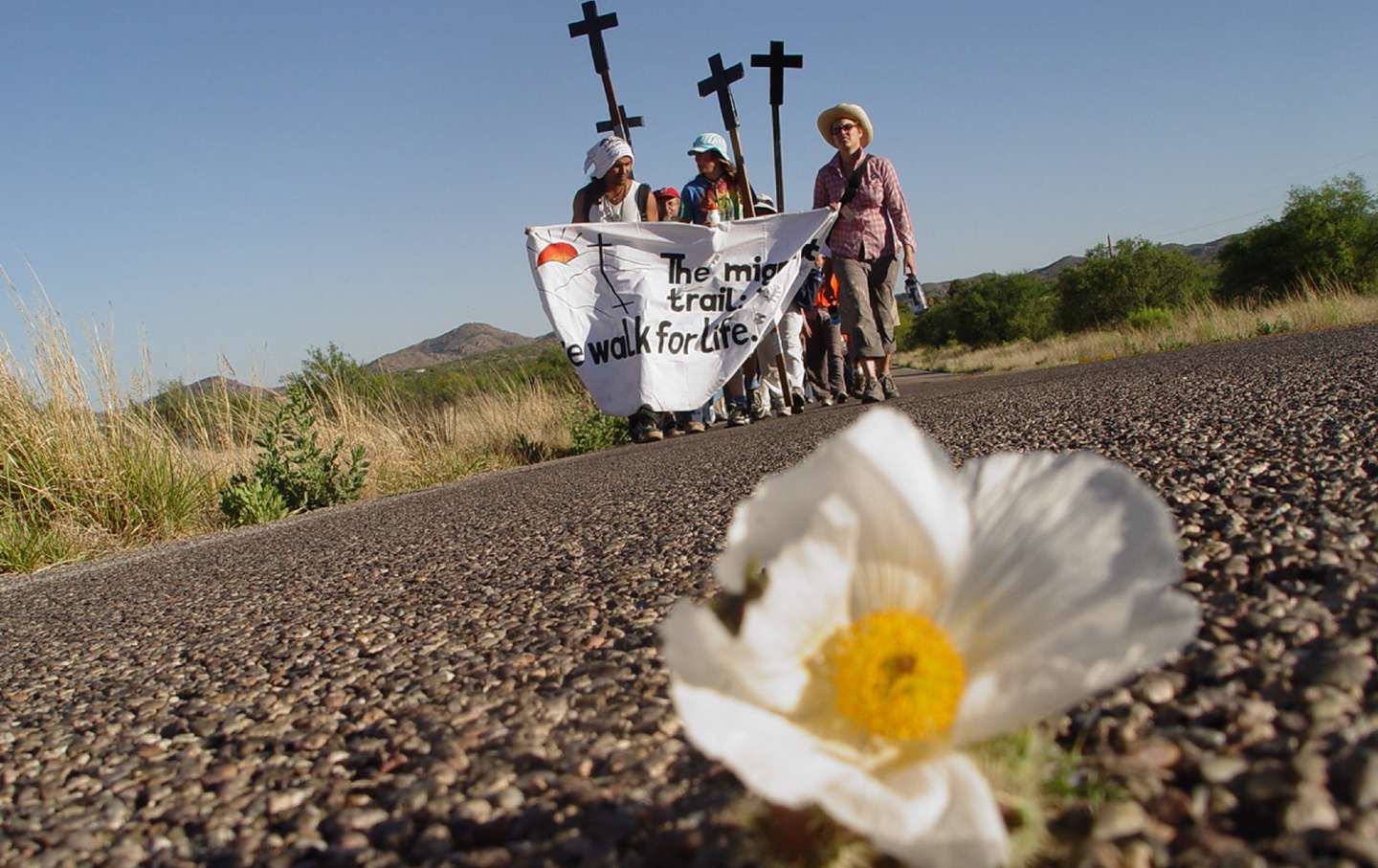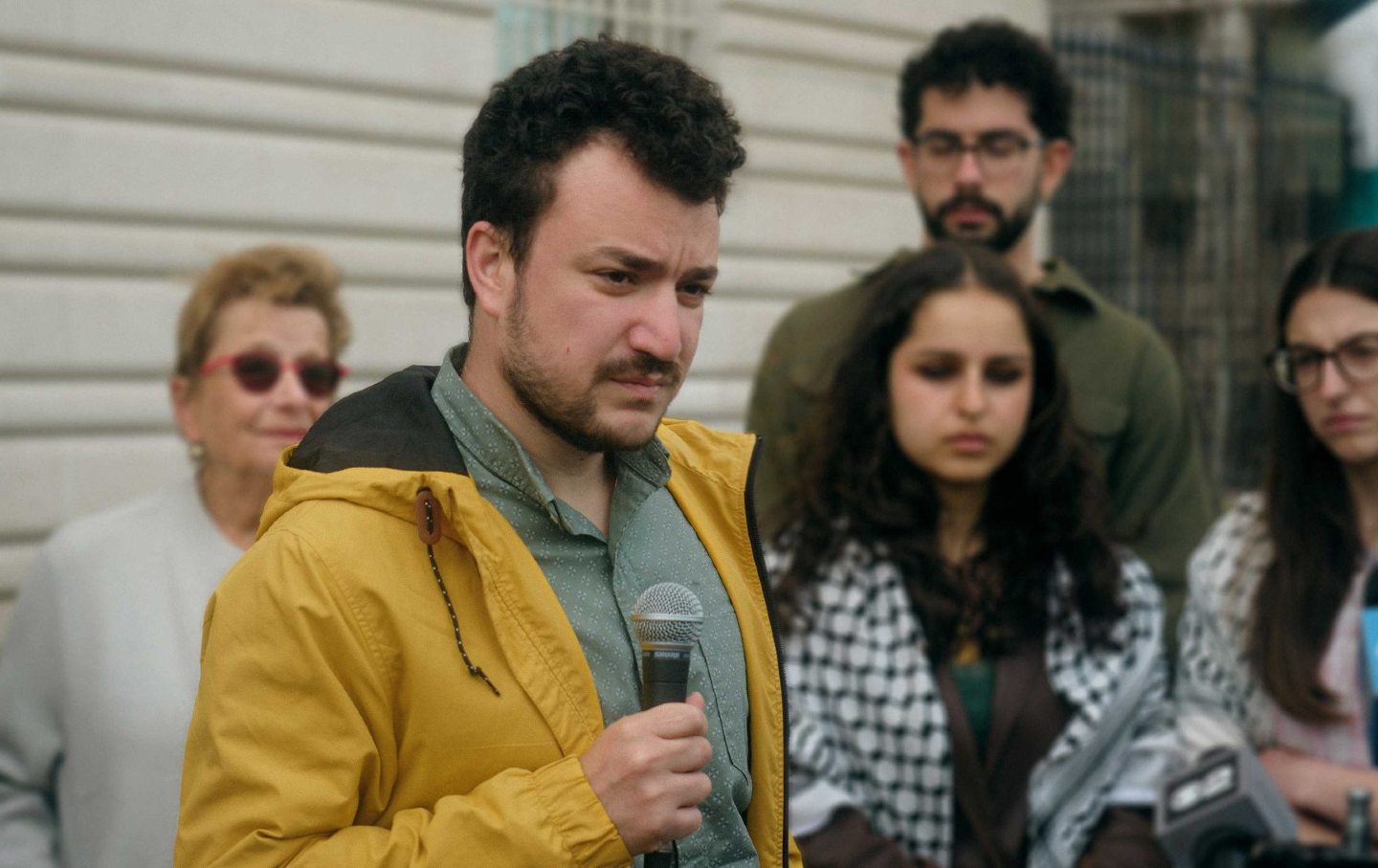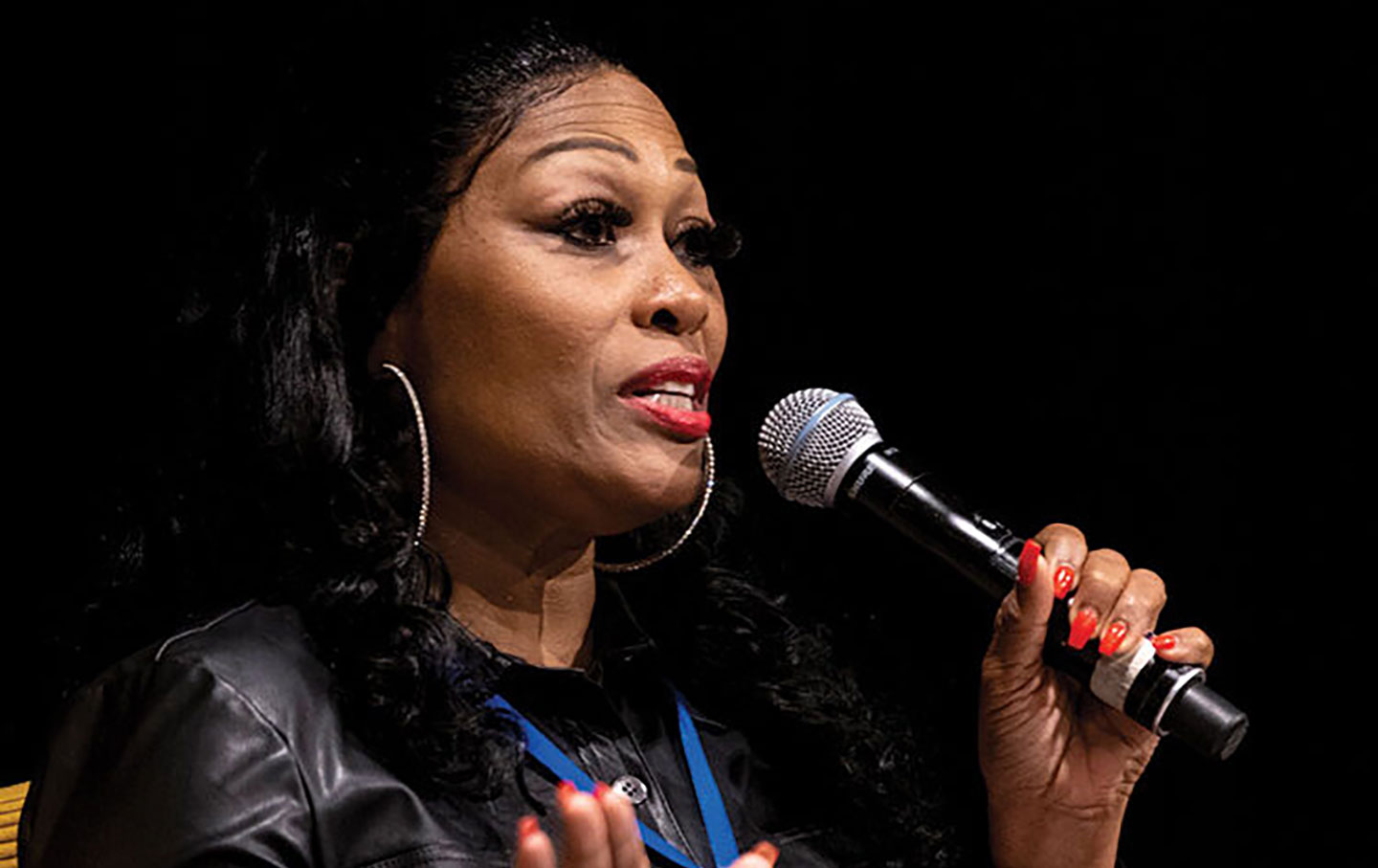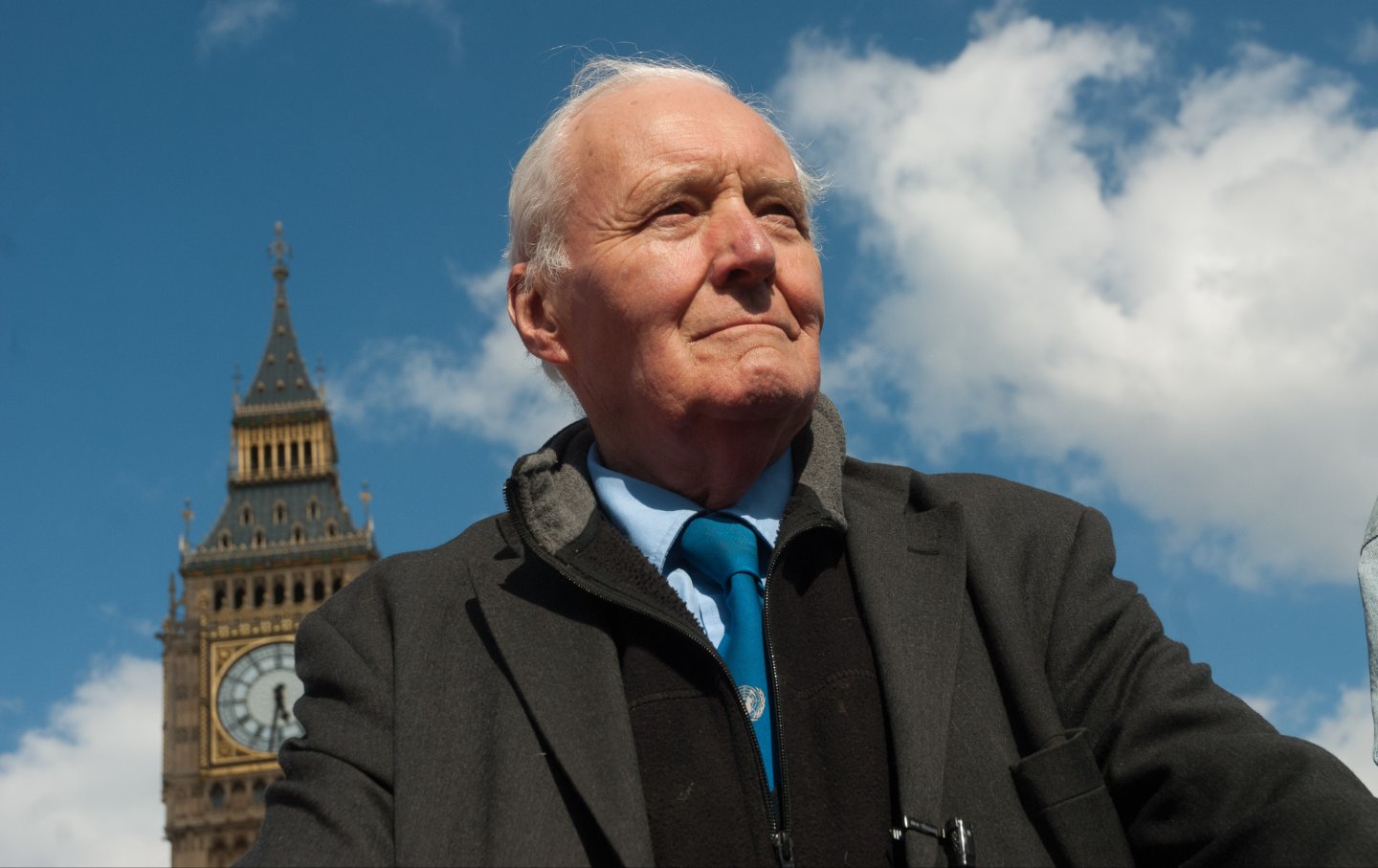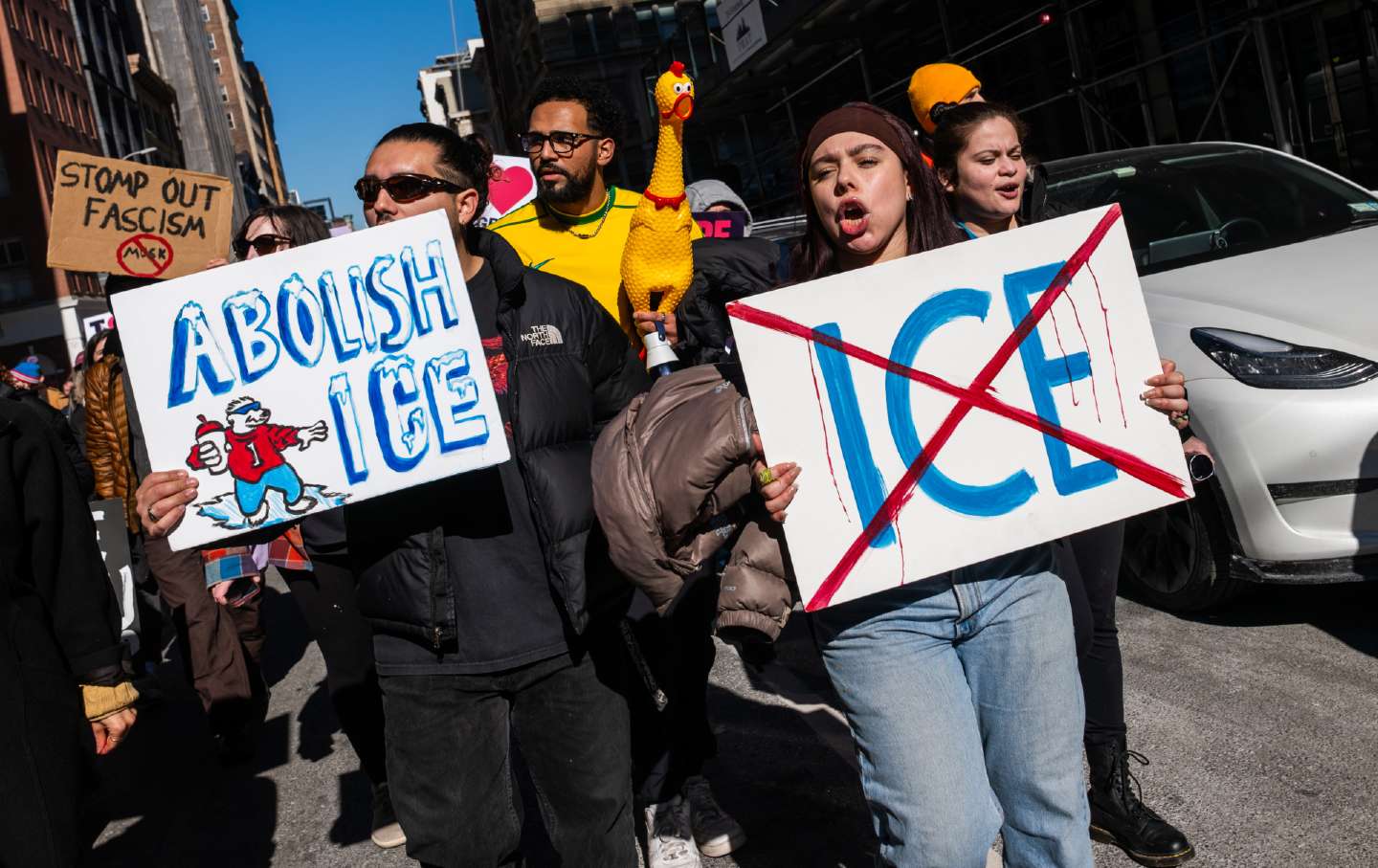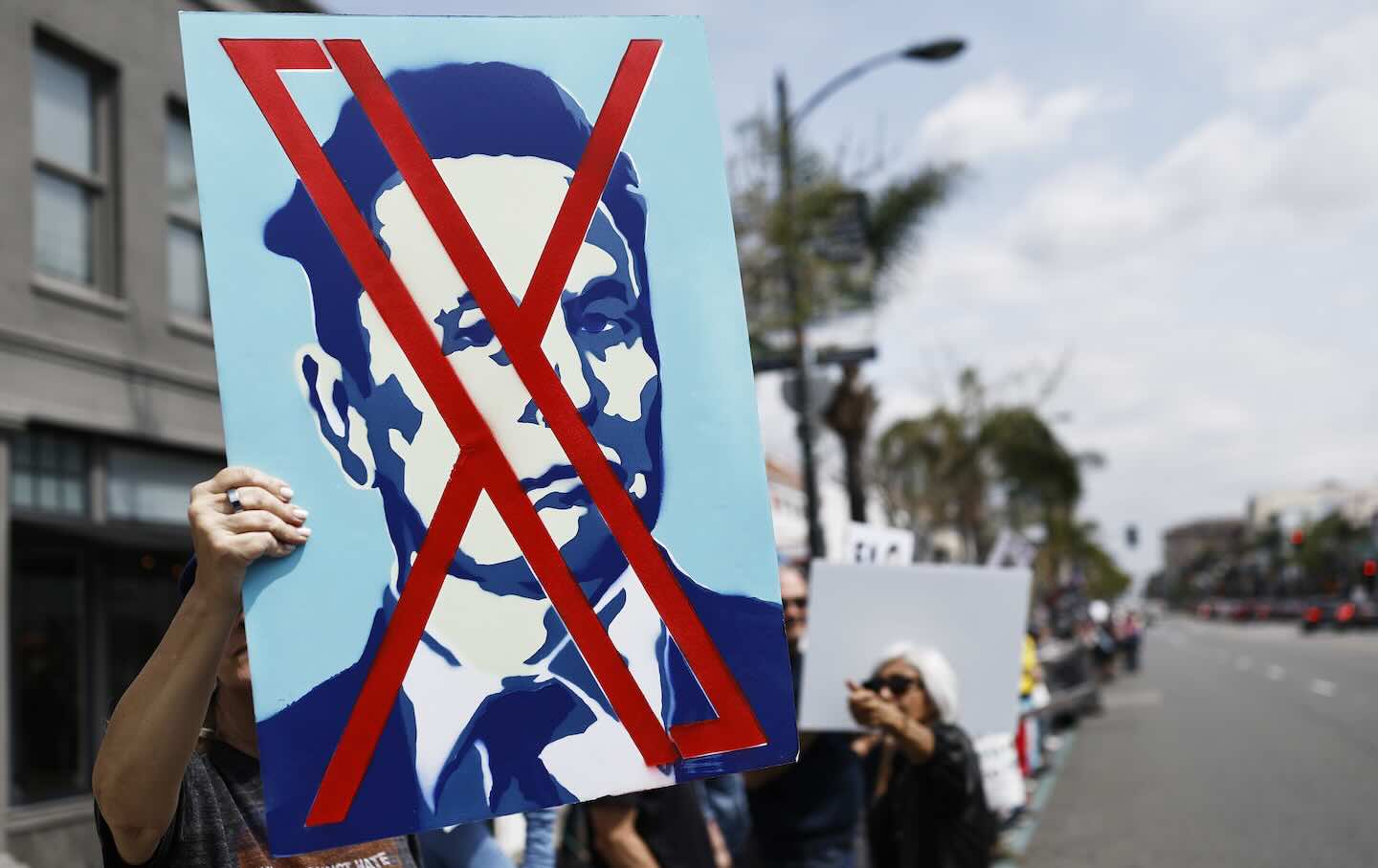A Pro-Palestinian Activist Lost His Case, but the “Fight From Below” Continues
Cornell University student Momodou Taal self-deported just weeks after he sued the federal government in response to Trump’s crackdown on pro-Palestinian protest.
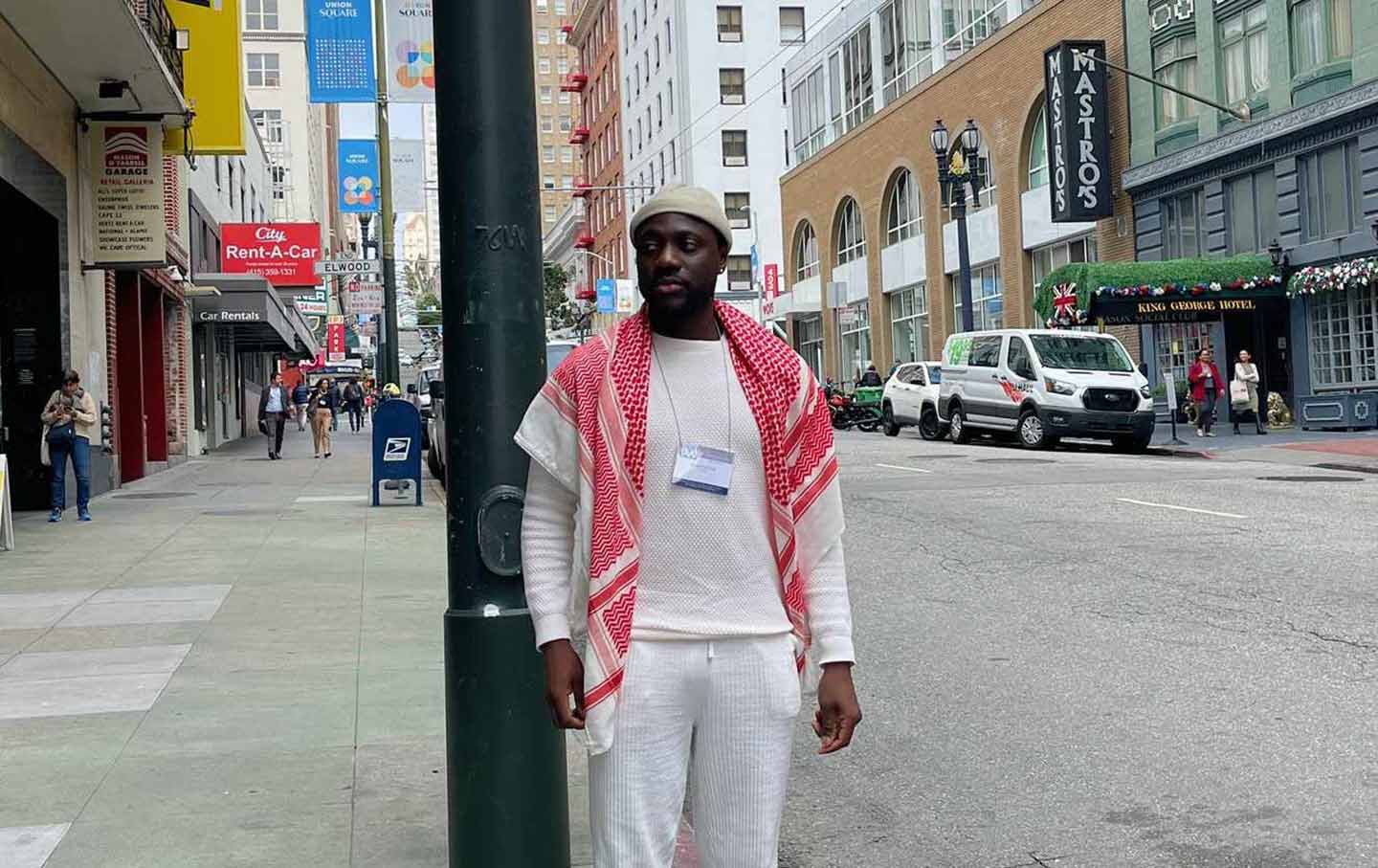
The day after Momodou Taal reported “unidentified” law enforcement outside his home, a small cluster of supporters gathered on March 20 at a public Q&A to press lead counsel Eric Lee for answers about the fate of his free speech case. Taal, a Cornell University student, along with professor Mukoma Wa Ngugi and graduate student Sriram Parasurama, had previously filed a lawsuit against the Trump administration on March 15 alleging that the federal government violated their First and Fifth amendment rights with two recent executive orders targeting noncitizen pro-Palestine activists—including Taal, who is a dual citizen of the United Kingdom and Gambia—for their speech.
At the Q&A, Lee spoke candidly. Lawyers don’t usually admit when they think they’re going to lose a case, but Lee did. “We know they’re going to rule against us,” he said. When his cocounsel interjected, Lee clarified that he did not think the case would “meet a friendly reception” if it reached the Supreme Court. Instead, he offered a consolation that became the case’s rationale. “If we lose the case, but there’s development of a fight from below,” Lee said. “Then, we’ve won the issue.”
The legal efforts have since largely failed. On March 21, while the lawsuit was still ongoing, Taal was told to surrender to US Immigrations and Customs Enforcement, and on March 27, a federal judge denied a motion to prevent Taal’s detention by ICE as well as large parts of his lawsuit. On March 31, Taal self-deported.
Several other pro-Palestine student activists, including recent Columbia University graduate Mahmoud Khalil and Tufts University graduate student Rumeysa Ozturk, have had similar encounters with plainclothes officers in a nationwide crackdown led by President Trump. While Khalil and Ozturk were detained by immigration authorities, Taal filed his lawsuit prior to the encounter, providing the means to initially contest his requested surrender to ICE in court.
But amid President Trump’s attacks on the nation’s judiciary, many supporters were hesitant to trust that relief could be granted through the courts. Before Taal’s case was heard in court, the federal government challenged the ability of US district courts to preside over his case, claiming in court filings that because the government initiated “removal proceedings” against Taal the day before he submitted his legal complaint, the court lacked jurisdiction.
In their reply submitted to the court, Taal and his lawyers questioned how the government “initiated and finalized a multi-agency review” that led to the identification of Taal as a target, the revocation of his visa, and the commencement of efforts to detain him “all on the same day,” March 14. Their reply further asked why the government did “not provide a reason for the sudden urgency to address the protest [Taal was scrutinized for] that had taken place six months prior.” Despite these questions, the government never specified why the action required to initiate “removal proceedings” was undertaken the day before he filed his lawsuit.
When asked by a reporter after the lawsuit’s first court hearing why Momodou Taal was not in appearance, Lee revealed that Taal did not appear because they could not confirm that ICE wouldn’t attempt to arrest Taal, even though the judicial decision on the matter then remained outstanding. “We unfortunately don’t know whether this executive branch is following the law,” Lee said.
From the beginning, Taal said in an interview with The Nation, he sought protection for not only for himself but other people too in similar situations by suing “before the inevitable happens.” Prior to the lawsuit, he suspected that he was going to be a target under the Trump administration. Taal and his legal team’s loss of trust and faith in the court system and government ultimately led to his decision to leave the county. “It became increasingly obvious that even with a court order, I wouldn’t have protection,” Taal said. “I felt more and more as the lawsuit progressed that I was gambling with my freedom.” Given that the Palestinian struggle is an international one, Taal felt that his advocacy work could be continued elsewhere.
Yihun Stith, an organizer for the Coalition for Mutual Liberation, noted that until recently “many could say there was a little bit of a lull” in pro-Palestine organizing. This changed when Taal’s lawsuit raised the stakes for the movement on campus. The coalition is an umbrella group of over 40 Cornell and community organizations that are heavily involved in the pro-Palestine movement. “When Eric Lee mentions the fact that the [people] on the street are more needed right now than the ones in the courtroom, it’s because the Trump administration comes after judges…. he’s come against the whole judicial system and rule of law,” Stith said.
While Taal’s legal battle has ended, pro-Palestine organizing efforts continue. As coplaintiff Parasurama said in an interview after the first hearing of Taal’s case, the lawsuit is “giving another backbone to our movement” and is another avenue for change that activists can employ. “It’s another kind of prong in the pitchfork,” he said.
In March, Cornell’s Student Assembly and Graduate and Professional Student Assembly submitted two resolutions to university president Michael I. Kotlikoff calling on Cornell to protect immigrant and international students. “This isn’t a moment to not put pressure both…in a broader sense, on the government, but also on our own university,” Stith said.
The assemblies called on Cornell to commit to providing legal assistance for community members faced with deportation and to build upon existing clinics at Cornell Law. Cornell administrators have yet to officially respond to either resolution; though Kotlikoff has 30 days to reply.
With the outcome of Taal’s case, protesters are left in a precarious position. “People need to lose their fear and realize that we are on the right side of history,” Taal said. We all have a role to play in the struggle and the affirmation of…Palestinian humanity and also in trying to build a new world. We have to continue despite the repression, despite the consequence.”
For Stith, the end of Taal’s case only clarifies the risks. “[Taal’s ruling] gives us a very clear calculus,” he said. “It’s good to know where the systems truly lie, and it’s good to know what [protections] actually will be there and what actually won’t be there.” Pro-Palestine demonstrations will have to make their own “structures of protection,” Stith says, which he believes can be created through their organizing. He feels the movement is ongoing, especially given recent protests at Harvard and Columbia. “There’s a lot of energy around the country, and I don’t think Cornell is anything separate,” he said.
As the law is tested, the fight continues from below. “Ultimately, our appeal is to you,” Lee had said to the crowd after the hearing. “If [the First Amendment] is going to be protected, it’s not just going to be protected by lawyers in the courts. It’s going to have to be protected by the American population.”

